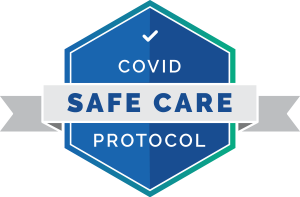The most common cause of a Morton’s neuroma is being on your feet for extended periods and wearing tight, narrow, or high-heeled shoes that compress or squeeze your feet. As your foot becomes irritated, the affected nerve will thicken and the resulting pressure causes nerve pain. Wearing the same shoes will cause further pressure and lead to increased amounts of nerve pain.
If tight shoes are not the cause, it is possible that a Morton’s neuroma is related to another foot condition. Morton’s neuroma is often associated with:
- Abnormal gait
- Fallen arches
- High arches
- Bunions
- Hammer toes
You should also consider if any of your regular activities could be causing your foot pain. A Morton’s neuroma could develop if you often participate in sports that require tight shoes, such as skiing, or by wearing something like ballet shoes. Sports that require a lot of running on hard surfaces and pressure on the ball of your foot, like indoor racquetball or basketball, should also be taken into account.
If you are experiencing pain that indicates Morton’s neuroma, start your diagnosis with our interactive condition assessment tool below.


